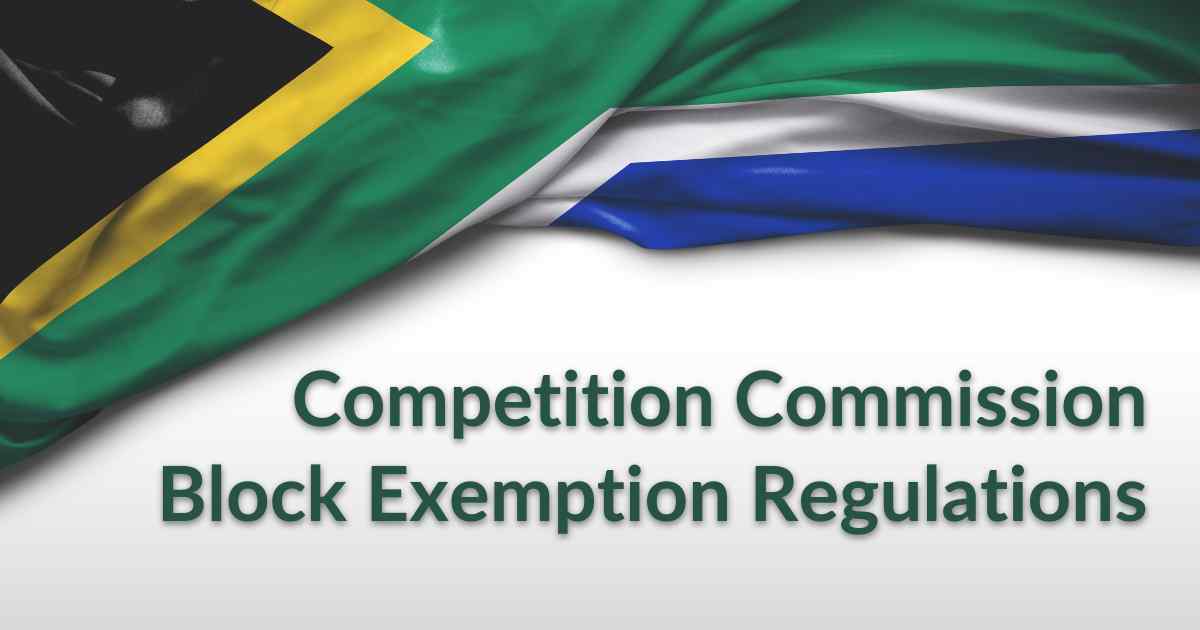
Scaling a small business is no easy feat, especially when you are competing with others in your area. To help small businesses be able to grow quicker in an affordable way, the Competition Commission South Africa has introduced some block exemption regulations for small, micro and medium-sized enterprises (SMMES).
The Competition Commission is in charge of investigating, controlling, and evaluating restrictive business practices, the abuse of dominant positions and mergers. The organisation does this under the empowerment of the Competition Act and works to achieve quality and efficiency in the South African economy.
The block exemption regulations are in place for the next 10 years, to exempt a category of agreements or practices among SMMEs contained in the schedule here to form the application of sections 4(1) and 5(1) of the Competition Act.
The Competition Commission gazetted the new regulations in June 2024. However, on 11 October, the organisation held a workshop to further explain the exemptions and how they are to be applied by SMMEs.
Speaking at the workshop was Bukhosibakhe Majenge, the Chief Legal Counsel and Acting Deputy Commissioner of the Competition Commission. Majenge said that the purpose of the block exemptions was to give relief and resources to SMMEs that were greatly affected by the COVID-19 pandemic and the 2021 South African unrest in July.
“The pandemic and the protests had a huge effect on the economy and various supply chains. Unfortunately, those events also led to the exit of many small businesses, so this block exemption was in part an attempt to respond to the effects of these events on small businesses,” explained Majenge.
When it comes to the block exemptions, the following categories have been recognised by the Competition Commission:
Research and Development (R&D)
Under the new exemptions, R&D agreements include outsourcing R&D activities to third parties or corporations. The R&D agreements include agreements under which one party puts in finances for R&D activities which will then be carried out by another party. The R&D cooperation may take the form of a cooperation agreement or a joint venture, namely a jointly controlled enterprise.
Production Agreements
Production agreements for the production of goods or the provision of a service, or toll manufacturing by one firm for another (standalone or on a reciprocal basis). These agreements must not result in the removal of a competitor from the market.
These agreements must have the goal of producing certain products and can only be done jointly. Production agreements also cover toll manufacturing by one company through a subcontracting agreement where one party (the contractor) entrusts the production activities to another party.
Joint Purchasing Agreement
Any joint purchasing agreement in which two parties agree to the collective buying. This agreement can involve more than two parties, and the aim must be to increase the volume or scale of their purchases in local markets and imports.
Commercialisation Agreement
Commercialisation agreements include co-operation between two parties for selling, distributing or promoting their products. These agreements may cover all the commercial aspects or be limited to one function. These types of agreements can have a wide scope depending on the commercialisation functions which are covered by the cooperation.
Standardisation Agreement
Standardisation agreements include setting the technical or quality requirements with which current or future products, production processes, services or methods may comply. These agreements may cover technical specifications, environmental performance, grades or sizes of products or the terms of approval by a regulatory body.
These are the agreements outlined by the Competition Commission that any SMME may enter into under the new exemptions.
“When you compare South Africa’s SMME industry the economy is still quite small compared to similar economies such as Brazil and India. We are doing this. We want to create an enabling framework and environment for the recovery of small businesses,” said Majenge.
Exclusions for the Competition Commision Block Exemptions
The Competition Commission also outlined certain instances in which exemption will not be granted. The new block exemptions exclude the following activities:
- The fixing of selling prices or goods or services to customers. The reason this is prohibited is because the coordination amongst competitors in fixing prices will only hurt the consumer.
- Collusive tendering is not allowed under the new block exemptions. This is because collusive tendering would undermine the competitive process within the public and private tender processes which are designed to obtain cost-effective goods and services. Additionally, collusive tendering would be detrimental to consumers.
Majenge explained that “businesses must understand that we (Competition Commission) are not anti-businesses. These exclusions are made because we are anti-competitive. We are here to open the door to extend the SMME sector”.
For small businesses, to take advantage of the new exemptions, you will need to apply. To apply, you will need to send in your application to exemption.conditions@compcom.co.za. Additionally, you will need to send a notification to the Department of Trade Industry and Competition (DTIC). You can send your DTIC notification to exemptions@thedtic.gov.za
You must be aware that the Competition Commission has 30 days to review your application. If you have not received any notification within 30 days of applying, you must consider your application as approved.
The Competition Commission also has the authority to rescind any approved applications if there is no compliance from your side as the applicant.
Apply for your block exemption today and start scaling your business and partnering with other businesses. For more information on legal requirements for SMEs, visit the SME South Africa website.
Visit SME Advice to book an appointment with one of our experts for more actionable business mentorship.

















